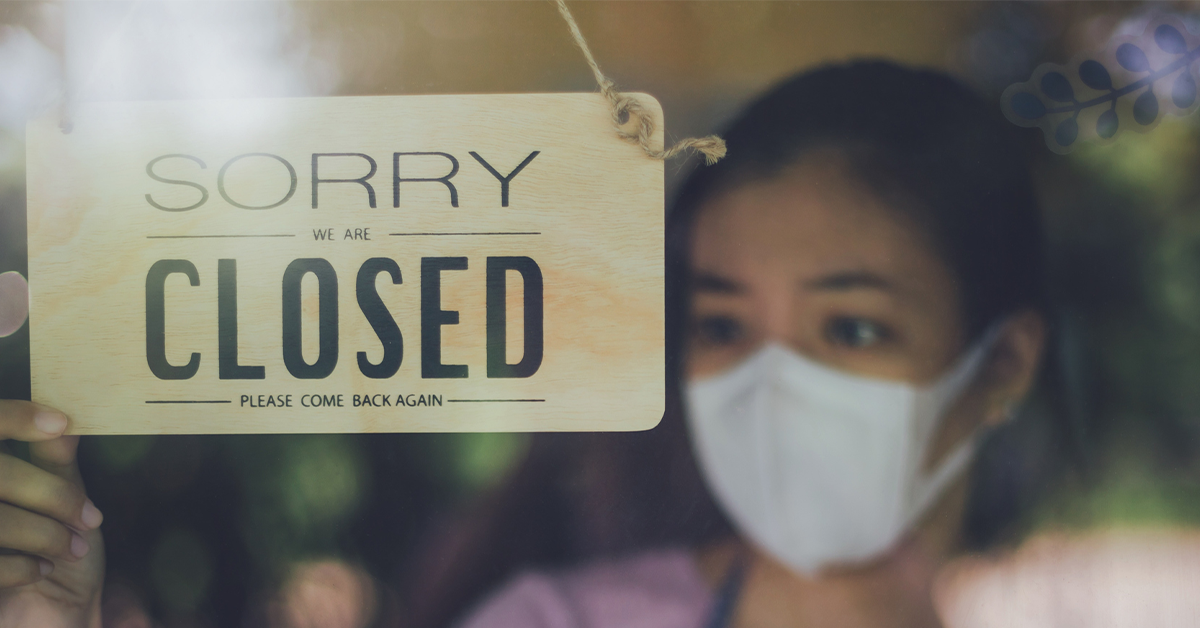
23 Nov COVID-19 and Mental Health: A Growing Crisis
COVID-19 swept the United States in the spring of 2020. Seemingly overnight, businesses shuttered, schools closed, and everyone not deemed an “essential worker” began to shelter at home. While the economy is now reopening in an uneven state-by-state, and even city-by-city patchwork, the pandemic is nowhere near under control.
A great deal of research has been done on the physical toll of COVID-19, including symptomology, death rates, and even “long haulers” (someone who was diagnosed with COVID-19 months ago, and has objectively “recovered,” but is still dealing with lingering effects such as fatigue and muscle weakness.) The economic impacts of the virus have also been heavily studied. But what about the psychological and emotional toll the pandemic is taking on Americans of all ages and backgrounds?
Since 2014, Mental Health America (MHA), a nonprofit mental health advocacy organization founded in 1909, has offered free, confidential, clinically-validated mental health screenings online. To learn about the mental health impacts of the COVID-19 pandemic, MHA compiled their results from January through September 2020 into a report called COVID-19 and Mental Health: A Growing Crisis. Here’s what they found.
Key Takeaways
- More than 1.5 million people sought an MHA online screening during the study period
- More than 80% of people who took an anxiety or depression screening had moderate to severe scores in the relevant condition
- Of the people who took the depression screening in September, 37% (47,968 people) reported thoughts of suicide on at least half the days
- Youth aged 11-17 are faring worse than any other group, especially those who are LGBTQ+
- Mental health is worsening across all races and ethnicities, but especially African Americans (who may have also been affected by the racial justice issues that came to a head at the same time) and Native Americans
Mental Health Deteriorating Over Time
Not only did more people take mental health screenings as the pandemic wore on, but the percentage of people who had moderate to severe scores also increased over time. In January, before anyone realized how bad the pandemic would be, 71% of people who took an anxiety screening and 78% of those who took a depression screening scored in the moderate to severe range. Depression peaked in July and August, with 85% receiving moderate to severe scores, before easing off to 84% in September. Anxiety climbed slightly slower, reaching a peak rate of 80% in September.
Demographic Variations
Depression, anxiety, and suicidal ideation during the pandemic are inversely connected to age. Youth aged 11-17 were the most likely to score highly for both anxiety (82.9%) and depression (90.2%), while adults over age 65 were the least likely (56.56% and 60.2% respectively). While suicidal ideation across all age groups was at 22%, the rate for youth aged 11-17 was an alarming 51%.
LGBTQ+ respondents were especially likely to report thoughts of suicide, rising to 55% by September. Among LGBTQ+ youth aged 11-17, the rate was a stunning 62%. BIPOC communities were also heavily affected, with Native Americans reporting suicidal ideation at a rate of 47%, Asian Americans at 43% and African Americans at 38%. Native Americans also showed the highest rates of moderate to severe anxiety (87%) and depression (90%). They were followed by African Americans (78% and 84% respectively).
** Note: All statistics refer to people who took online screenings, not the general population.
Top Concerns
Somewhat surprisingly, though COVID-19 itself is on everyone’s minds, it doesn’t appear to be the biggest driver of mental health concerns. Instead, it is the affiliated loneliness and isolation that is causing the worst psychological effects, with 71% of respondents listing this as a primary factor. Humans are social creatures and tend to turn to each other for comfort. Yet staying safe during a pandemic requires people to stay apart.
The virus itself is one of the top three most commonly cited concerns for people with mental health issues, along with current events such as politics, and the daily news. Other considerations include economic impacts, grieving a lost loved one, tapping into past traumas, relationship difficulties, and racism.
Putting It All Together
COVID-19 is a complex problem. Not only are people struggling with the physical effects of getting sick and the fear of catching the virus or giving it to others, it has also upended every aspect of our lives. The unemployment rate remains staggeringly high. Many small businesses have been forced to close, some permanently. Those who are able to work from home are doing so remotely, and many kids are going to school online, with little opportunity for social or physical peer contact.
In normal times of crisis, people cope by coming together to share their feelings and make sense of the situation. But during the pandemic, the only way to stay safe is to remain physically distanced and isolated from others. Add in other crises we are currently facing, including racial unrest and a highly polarized political climate, and it’s not surprising that American mental health is continuing to worsen as the pandemic drags on.



Sorry, the comment form is closed at this time.